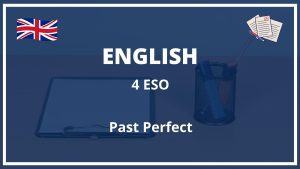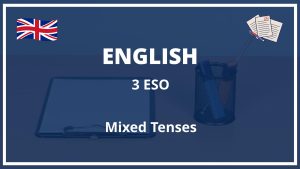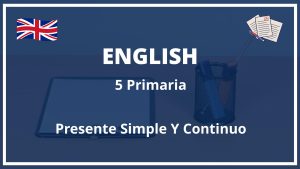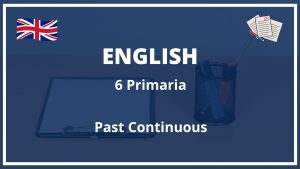
Abrir Ejercicios Present Perfect 6 Primaria | Exercices
El Present Perfect es un tiempo verbal de la lengua inglesa que se forma con el auxiliar have/has y el participio pasado del verbo principal. Se usa para hablar de acciones que han sucedido en un momento indeterminado del pasado o que comenzaron en el pasado y todavía continúan en el presente.
Por ejemplo, en la frase “I have played tennis”, la acción de jugar al tennis comenzó en el pasado y todavía continúa en el presente. En cambio, en la frase “I have washed the car”, la acción de lavar el coche ya ha terminado en el momento en que hablamos.
Cómo se forma el Present Perfect
El Present Perfect se forma con el auxiliar have/has y el participio pasado del verbo principal. El auxiliar have/has se conjuga según el sujeto:
- I have (yo he)
- you have (tú has)
- he/she/it has (él/ella/ello ha)
- we have (nosotros hemos)
- you have (vosotros habéis)
- they have (ellos/ellas han)
Y el participio pasado del verbo principal se forma añadiendo -ed a los verbos regulares o -en a los irregulares. Por ejemplo, el participio pasado de play es played, de wash es washed y de go es gone.
Usos del Present Perfect
El Present Perfect se usa para hablar de acciones que han sucedido en un momento indeterminado del pasado o que comenzaron en el pasado y todavía continúan en el presente. A continuación te mostramos algunos de los usos más comunes del Present Perfect:
- Para hablar de acciones que ocurrieron en un momento indeterminado del pasado:
- I have read that book.
- We have visited that city.
- They have gone to the cinema.
- Para hablar de experiencias:
- I have played tennis.
- She has been to Japan.
- They have driven a Ferrari.
- Para hablar de acciones que comenzaron en el pasado y todavía continúan en el presente:
- I have known her since we were kids.
- We have been friends for years.
- I have loved her since the first time I saw her.
- Para hablar de una serie de acciones que han sucedido en el pasado:
- I have played tennis, washed the car and gone to the supermarket.
- She has been to Japan, China and Korea.
- They have driven a Ferrari, a Porsche and a Lamborghini.
Cómo se usa el Present Perfect con always, yet y just
El Present Perfect se usa a menudo con los adverbios always, yet y just. A continuación te explicamos cómo se usan cada uno de ellos:
- Always: se usa para hablar de acciones que suceden de manera habitual o repetida.
- I have always wanted to be an astronaut.
- She has always dreamed of living in New York.
- They have always played tennis on Sundays.
- Yet: se usa para hablar de acciones que no han sucedido hasta el momento, aunque se esperaban.
- I have wanted to be an astronaut since I was a kid, but I haven’t gone to space yet.
- She has dreamed of living in New York since she was a teenager, but she hasn’t moved there yet.
- They have played tennis on Sundays since they were young, but they haven’t played today yet.
- Just: se usa para hablar de acciones que acaban de suceder.
- I have just finished my lunch.
- She has just arrived home.
- They have just left the house.
Ejercicios Resueltos Present Perfect Ingles 6 Primaria
Ejercicios Resueltos Present Perfect Ingles 6 Primaria
El present perfect se forma con el verbo to have en el presente simple + el participio pasado del verbo principal. Se usa para hablar de acciones que han ocurrido en un momento indefinido en el pasado o que han terminado recientemente. También se usa para describir experiencias, habilidades y estados duraderos.
Ejemplos:
- I have seen that movie three times.
- She has been to France.
- They have had their car for two years.
- I have known him for a long time.
En estos ejercicios de present perfect inglés para niños de sexto de primaria tienes que completar las frases con el verbo que falta en present perfect.
Ejercicio 1: Completa las frases con el verbo que falta en present perfect.
- I ______________ (read) five books this week.
- They ______________ (have) a new car.
- We ______________ (meet) three times this month.
- She ______________ (not watch) television all day.
- I ______________ (not eat) breakfast this morning.
- They ______________ (not go) out all weekend.
- We ______________ (not play) tennis yesterday.
- I ______________ (not work) all day.
- She ______________ (not study) hard enough.
Ejercicio 2: Escribe las frases del ejercicio anterior en negativo.
- I ______________ (read) five books this week.
- They ______________ (have) a new car.
- We ______________ (meet) three times this month.
- She ______________ (not watch) television all day.
- I ______________ (not eat) breakfast this morning.
- They ______________ (not go) out all weekend.
- We ______________ (not play) tennis yesterday.
- I ______________ (not work) all day.
- She ______________ (not study) hard enough.
Ejercicio 3: Completa las frases con el verbo que falta en present perfect. Usa la forma negativa.
- I ______________ (not see) that movie.
- They ______________ (not have) a new car.
- We ______________ (not meet) three times this month.
- She ______________ (not watch) television all day.
- I ______________ (not eat) breakfast this morning.
- They ______________ (not go) out all weekend.
- We ______________ (not play) tennis yesterday.
- I ______________ (not work) all day.
- She ______________ (not study) hard enough.








